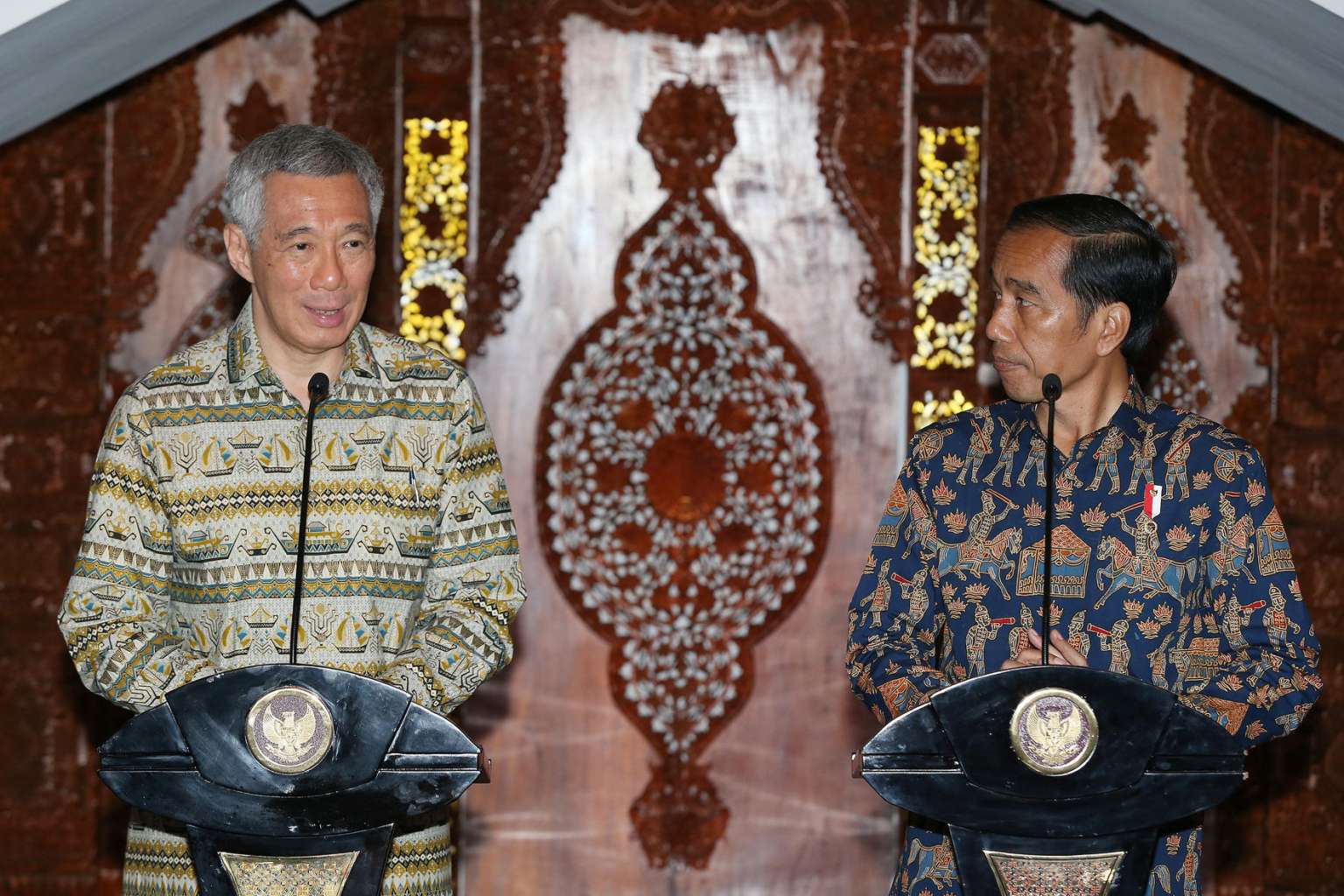Singapore disappointed TPP is unlikely to be passed under Donald Trump: PM Lee
Sign up now: Get insights on Asia's fast-moving developments

Prime Minister Lee Hsien Loong (left) and Indonesian President Joko Widodo at a joint press conference at Wisma Perdamaian in Semarang, Indonesia on Nov 14, 2016.
PHOTO: LIANHE ZAOBAO
SEMARANG, Central Java - Prime Minister Lee Hsien Loong has expressed his disappointment that the Trans-Pacific Partnership (TPP) is now unlikely to be passed under US President-elect Donald Trump, whose opposition to it was a key part of his election campaign.
"Well, we feel disappointed that the TPP looks very unlikely, or will not be passed, or ratified now", before the new president is sworn in on Jan 20, said PM Lee.
Mr Lee was speaking on the sidelines of his first Leaders' Retreat with President Joko Widodo in Indonesia on Monday (Nov 14).
PM Lee said that Mr Trump's opposition to the free trade deal when he was campaigning to be US president, "was quite well-known".
"He had no sympathy for the TPP at all and I think that's a disappointment to all of us who worked so hard to negotiate the TPP," he added. "But that's where it stands, we will be meeting in Apec in Peru later this week and the TPP members, including President (Barack) Obama, will be meeting to exchange notes to see what we can do in this situation."
The TPP is a landmark trade deal that the US signed with 11 Pacific Rim nations, including Singapore. However, the US has not ratified the pact.
The pact's 12 signatories account for 40 per cent of global trade. With the TPP, Singapore would have been able to enjoy lower tariff and non-tariff barriers for both goods and services, but observers say it will probably not be pushed through in a Trump administration.
PM Lee had said previously that the US risks injuring its standing and credibility with countries around the world if the TPP is rejected by its lawmakers.
When asked it the TPP could be salvaged if its terms are reviewed or possibly changed to include countries like Russia or China, PM Lee said that would be "a completely new animal".
"It's not so easy to say we change the terms, what are you going to change?... And if you bring in a new country, it would be a completely new deal altogether because a new country, particularly if it's a big one, is not going to sign on to everything which has already been agreed before they were participants.
"They will want to re-open everything, so effectively you'll be talking about a new exercise but I think it's premature to pursue very definite alternative possibilities for now. Let's first assess how everybody feels and what they think could be done as a practical second best or solution for the time being."


